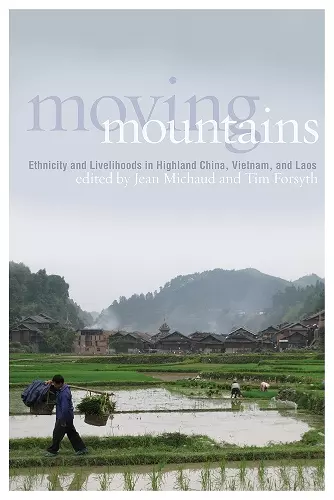Moving Mountains
Ethnicity and Livelihoods in Highland China, Vietnam, and Laos
Jean Michaud editor Tim Forsyth editor
Format:Hardback
Publisher:University of British Columbia Press
Published:10th Nov '10
Currently unavailable, and unfortunately no date known when it will be back

This non-fiction hardback, "Moving Mountains" from Jean Michaud & Tim Forsyth, was published 10th November 2010 by University of British Columbia Press.
ISBN: 9780774818377
Dimensions: unknown
Weight: 510g
256 pages